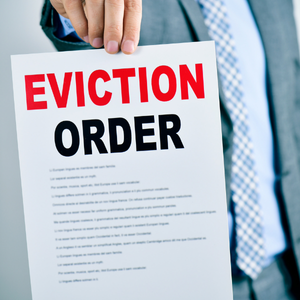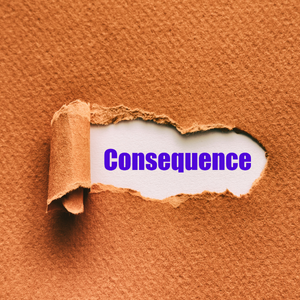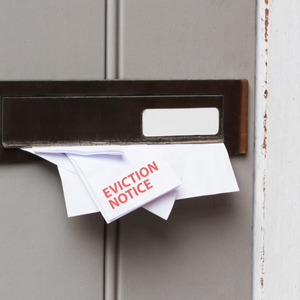
Residential and commercial landlords and tenants must understand Chicago’s eviction process. The timeline and procedure of city evictions are explained in this comprehensive guide to help you understand. Knowing how long an eviction might take can affect your next steps as a tenant or a property owner, ensuring compliance. Find effective methods, legal implications, and essential resources to help you make informed decisions about Illinois’ housing laws. Illinois Real Estate Buyers in Chicago can assist with eviction.
Brief Overview
Chicago landlords and tenants must understand the eviction process to manage expectations and improve communication. The timeline usually takes weeks to months, depending on circumstances and legal protocols. Navigating the complexities requires staying current on local laws. Consult a lawyer for tailored advice, or look into cash home buyers in Chicago and nearby cities to avoid eviction faster. With knowledge and support, make confident decisions in these situations.
Key Highlights
➤ Understanding the Chicago eviction process is vital for navigating rental agreements effectively and managing expectations.
➤ An eviction can take several weeks to months, depending on legal steps and tenant responses.
➤ Key reasons for eviction include non-payment of rent and lease violations, highlighting the importance of tenant and landlord roles.
➤ Preparing for eviction court involves gathering evidence, understanding rights, and potentially seeking legal advice.
➤ Effective communication and clear lease agreements help prevent eviction issues and foster positive landlord-tenant relationships.
Understanding the Illinois Eviction Process
Different factors make Illinois eviction complicated. Law and timelines are crucial to each step of this process. Understanding Chicago, IL, eviction times is crucial for landlords and tenants. To help you navigate the legal process, we’ll cover everything from serving a termination notice to finalizing an eviction order. After learning the eviction timeline, you can better handle legal issues.
Steps in the Eviction Process
1. Serve a Termination Notice
Landlords issue a written notice to tenants, typically:
● 5-day notice for unpaid rent
● 10-day notice for lease violations
The notice explains the reason for eviction and gives tenants time to correct the issue or move out.
2. File an Eviction Lawsuit
If the tenant does not respond or resolve the issue, the landlord files a forcible entry and detainer action in the appropriate Illinois court. Correctly filing documents is crucial to avoiding delays in the process.
3. Attend the Court Hearing
Both parties present their arguments. Preparation is key, including gathering detailed documentation and presenting a clear case.
4. Obtain an Eviction Order
If the court rules in favor of the landlord, an eviction order is issued, allowing the landlord to proceed with enforcement.
5. Sheriff’s Eviction
The local sheriff executes the eviction, supervising the tenant’s removal from the property.
Following these steps and ensuring legal compliance helps landlords navigate the eviction process efficiently while understanding the timeline and potential delays.
How long do Chicago evictions take?

Illinois evictions begin with a five- or ten-day written notice, depending on the reason. This period gives tenants time to fix the problem or leave. In case of noncompliance, landlords can sue for eviction.
Court dates can take weeks to get, depending on schedules. After both parties present their cases, the court issues an eviction order if the landlord wins. Tenants can resolve the issue before the court ruling to avoid further proceedings.
Landlords work with the sheriff’s office to evict tenants, which can take days. Due to court timelines, tenant responses, and case complexity, notice of execution can take weeks to months. Knowing this helps landlords and tenants plan.
Common Reasons for Eviction in Chicago
Both landlords and tenants in Chicago worry about eviction. The main reasons for eviction can help you navigate this complicated legal process. Rent arrears and lease violations often lead to evictions. As these issues often lead to disputes, all parties must understand their rights and responsibilities. Explore these common grounds for eviction to help landlords manage their rental properties and tenants avoid pitfalls.
Chicago Rent Nonpayment
Nonpayment of rent is a leading cause of eviction in Chicago. A five-day written notice demanding payment can start the eviction process for nonpaying tenants. This notice gives tenants a chance to pay overdue rent or arrange a payment plan before legal action.
If the tenant doesn’t pay or agree, the landlord can sue for eviction. Tenants can appeal the eviction if they believe the rent demand is wrong or that prior agreements were not honored. Eviction orders allow landlords to reclaim property if the court rules in their favor. Landlords benefit from documenting all communications and payments, while tenants should keep proof and know their rights.
Actively preventing non-payment can prevent eviction. Grace periods or payment plans may be offered by landlords to tenants in financial distress. Effective communication, flexibility, and legal knowledge can improve landlord-tenant relations and reduce evictions.
Chicago Leasing Violations
Chicago evictions often result from lease violations. These occur when tenants violate their rental agreements by subletting, breaking the law, or causing significant property damage. When a violation occurs, landlords send a 10-day written notice to the tenant to fix it or leave. The severity and nature of the violation determine notice and legal action.
In eviction court, landlords must prove the tenant breached the lease and failed to resolve the issue within notice. Photo evidence, witness statements, and recorded communications are possible. Tenants can dispute the landlord’s claims or show they fixed the violation. Both parties must communicate and document throughout the process.
Preventing disputes requires understanding lease terms. While tenants should read and understand all rules before signing, landlords should clearly explain them. Encouraging tenants to report issues early and resolve them quickly can reduce misunderstandings and eviction risk, making renting easier for everyone.
To help both parties avoid potential conflict and foster a conducive living environment, consider the following practices:
➤ Thoroughly review and understand lease terms together before signing, confirming both parties comprehend their rights and responsibilities.
➤ Maintain regular, open communication between landlord and tenant, ensuring any issues are promptly addressed.
➤ Establish a routine inspection schedule agreed upon by both parties to identify and resolve maintenance issues early.
➤ Keep written records of all interactions, agreements, and payments to prevent misunderstandings and disputes.
➤ Encourage tenants to purchase renters’ insurance to cover personal belongings and liability, reducing financial risks.
➤ Provide a welcome guide with information on property rules, amenities, and local services, fostering a sense of community.
➤ Set clear expectations about noise levels, guests, and pet policies from the outset, minimizing potential conflicts.
➤ Respond promptly to repair requests, demonstrating commitment to maintaining the property and tenant satisfaction.
➤ Offer mediation or conflict resolution resources to amicably handle disagreements before they escalate.
These proactive steps enable both landlords and tenants to enjoy a harmonious leasing relationship without the threat of eviction.
What to Expect in Eviction Court
Chicago landlords and tenants alike find eviction court intimidating. The legal outcome of an eviction case depends on these proceedings. Knowing what to expect reduces anxiety and improves preparation. Know how to prepare for court and understand possible outcomes and consequences. These tips will help landlords and tenants navigate the court.
Ready for Your Illinois Eviction Court Appearance
Illinois eviction court landlords and tenants must prepare. Letting agreements, payment records, notices, and correspondence can help landlords prove their claims. Organized documentation simplifies courtroom presentation.
Understanding their rights and gathering proof of rent payments, communication records, and unresolved maintenance requests can help tenants prepare. Know the eviction timeline and court schedule to avoid surprises and be ready for each step.
Both parties must know Illinois eviction laws. Lawyers can explain legal terms, defenses, and outcomes. Clear, organized, and articulate court presentations enhance confidence and increase the chances of a favorable outcome, even for first-time eviction hearing attendees.
Consequences and Implications

After reviewing the evidence, the judge ruled differently for landlords and tenants. If eviction is justified, tenants must vacate within a certain timeframe, and landlords can legally reclaim the property and collect unpaid rent. According to Illinois law, landlords must work with local police, such as the sheriff, to evict tenants.
Eviction records can affect rental opportunities, making it difficult for tenants to find new housing and secure future leases. Understanding these implications can help tenants approach landlords before court to reach an agreement.
Not all landlords win. If tenants prove wrongful eviction or the landlord violated the law, they may win. For landlord violations, tenants may stay and receive compensation. Knowing possible outcomes helps both parties plan their next steps and understand their rights and responsibilities after the court decision.
Tenant Rights and Obligations
Illinois tenants must know their rights and responsibilities to navigate the eviction process, especially in Chicago. Eviction notices, tenant responses, and legal protections must be understood. Knowledge helps tenants handle rental issues and avoid pending lawsuits. This section clarifies what an eviction notice is and how tenants can respond to it, empowering tenants to make informed decisions and promoting a fair and legally compliant rental environment.
Understanding the Eviction Notice
The Illinois eviction process begins with an eviction notice for lease violations like unpaid rent. Chicago tenants receive a five-day notice for unpaid rent or a ten-day notice for other violations to resolve the issue or prepare for court. Protecting tenant rights requires understanding the notice.
The notice must state the reason for eviction and include details like the amount owed or the lease term violated. It sets a timeline for corrective action and warns tenants that landlords can take the case to court if they don’t respond. Clear and precise notices prevent misunderstandings and support legal responses.
Legal compliance benefits landlords and tenants. Tenants who understand the notice can take corrective action to avoid court, but an improperly served notice can delay or dismiss the case. In court, the written notice is evidence. Chicago tenants can protect their housing rights and navigate the eviction process by understanding its purpose and requirements.
Chicago Tenant Eviction Responses
Chicago tenants should read eviction notices carefully, understand the reasons, and note the response deadline. The notice can be followed by tenants paying overdue rent or stopping prohibited activities. Within the legal timeframe, disputes are often resolved quickly, and housing stability is maintained.
A landlord-tenant negotiation is also possible. Open communication may lead to lease adjustments or payment plans. The matter may go to court, so keep records of all interactions. Quick action indicates a desire to resolve the issue peacefully.
Lastly, tenants can sue for unjustified eviction. This requires proof of rent payments or lease breaches and legal advice. Learning Illinois tenant rights and preparing a strong defense can help tenants keep their homes and win in court.
| Key Component | Responsibilities | Options for Tenants | Potential Outcomes |
|---|---|---|---|
| Lease Agreement | Understand and adhere to terms | Negotiate terms before signing | Legal protection, stronger case |
| Rent Payments | Pay on time | Set up auto-pay or reminders | Avoid late fees, maintain good standing |
| Property Maintenance | Report issues promptly | Communicate via documented channels | Timely repairs, improved living conditions |
| Eviction Notices | Respond within legal timeframe | Seek legal advice, mediation | Possible resolution: extended timeline |
This table provides a concise overview of how tenants can navigate the eviction process effectively while understanding their legal rights and responsibilities.
Tips for Landlords in Illinois
Evictions and other legal issues complicate Illinois rental property management. Understanding the Chicago eviction process helps landlords resolve disputes legally and efficiently. This section provides tips to help landlords avoid evictions, maintain good landlord-tenant relationships, and comply with Illinois laws. These strategies can also be useful when working with We buy houses in Illinois and neighboring cities, providing options for property owners facing challenging situations.
Preventing Eviction Issues in the Future

Illinois eviction prevention begins with tenant screening and property management. A thorough background, credit, and rental history check ensures reliable tenants who are less likely to default on rent or break lease agreements, reducing evictions.
Communicating and defining leases are crucial. Outlining rent schedules, maintenance responsibilities, and behavioral expectations, and promptly addressing tenant concerns and maintenance requests, prevents eviction disputes. Clear communication improves landlord-tenant relations and cooperation.
To avoid delays or legal issues, landlords should understand Illinois eviction laws and how to serve notices and follow timelines. With structured rent collection, reminders, and flexible financial solutions, these practices reduce conflicts and promote a stable rental environment, reducing eviction risk.
Chicago’s eviction process can help landlords and tenants manage expectations and improve interactions. Specific circumstances and legal protocols can affect the timeline, but it usually takes weeks to months. Being aware of local laws helps navigate the complexities. Consider consulting a lawyer or buying a home with cash to avoid eviction faster. For guidance or assistance, fill out our quick contact us form to get the support you need and confidently handle these situations.
Facing eviction or needing to sell fast? Illinois Real Estate Buyers offers fair cash deals and handles everything for a quick, hassle-free sale. Call (773) 305-6373 for a no-obligation offer today!
FAQs
What is the typical timeline for the eviction process in Chicago?
Evictions in Chicago can take weeks or months, depending on the circumstances and legal procedures. Times can be affected by court schedules, tenant responses, and case complexity.
What are the common reasons for eviction in Chicago?
Non-payment of rent and lease violations lead to Chicago evictions. For these issues to be avoided and tenancy to run smoothly, landlords and tenants must understand their roles.
What should tenants do upon receiving an eviction notice in Chicago?
Eviction notices should be read carefully to understand the reasons for eviction and the timeline to address the issue. If they disagree with the eviction, they can fix it, negotiate with the landlord, or sue.
How crucial is legal compliance for landlords evicting tenants?
Evictions require legal compliance. Landlords must properly serve and file eviction notices and legal documents to avoid extended eviction timelines and legal issues. Getting help from a lawyer can simplify this process.
Can landlords and tenants avoid eviction?
Early management and communication prevent evictions. Tenants should comply with lease terms, and landlords should screen tenants. Open communication helps prevent problems from escalating.
